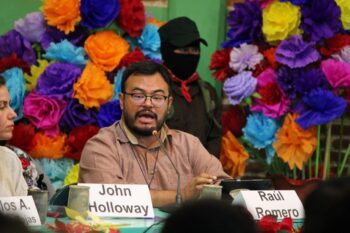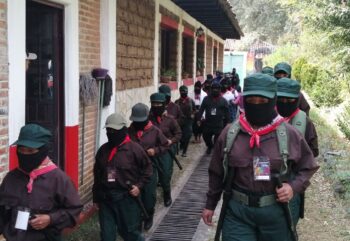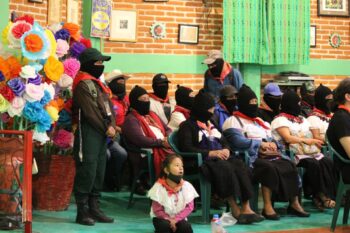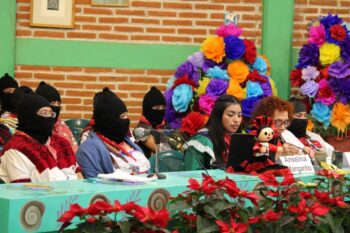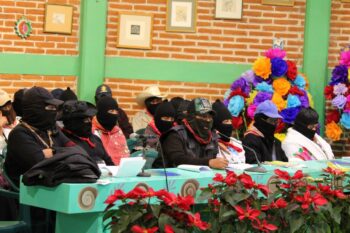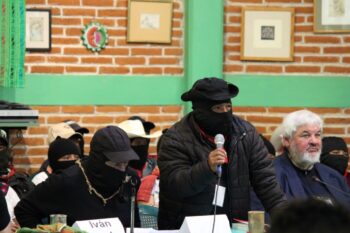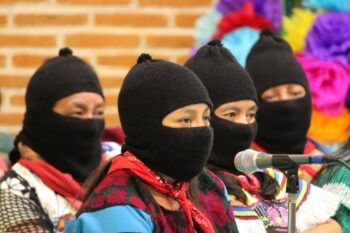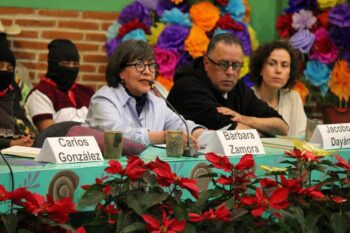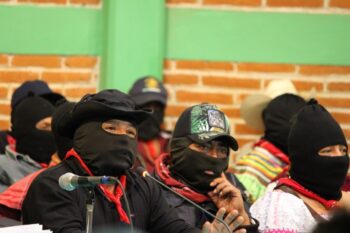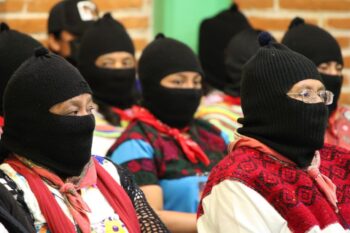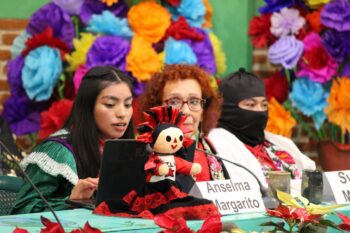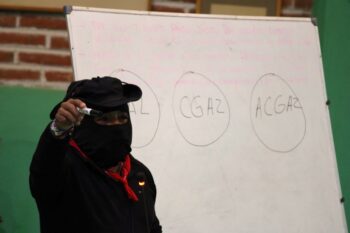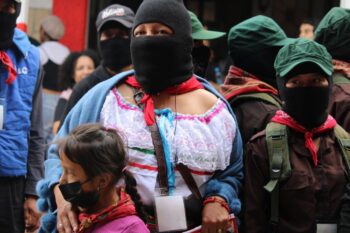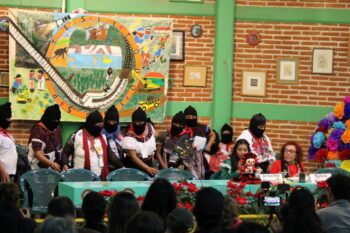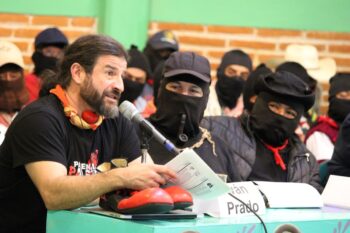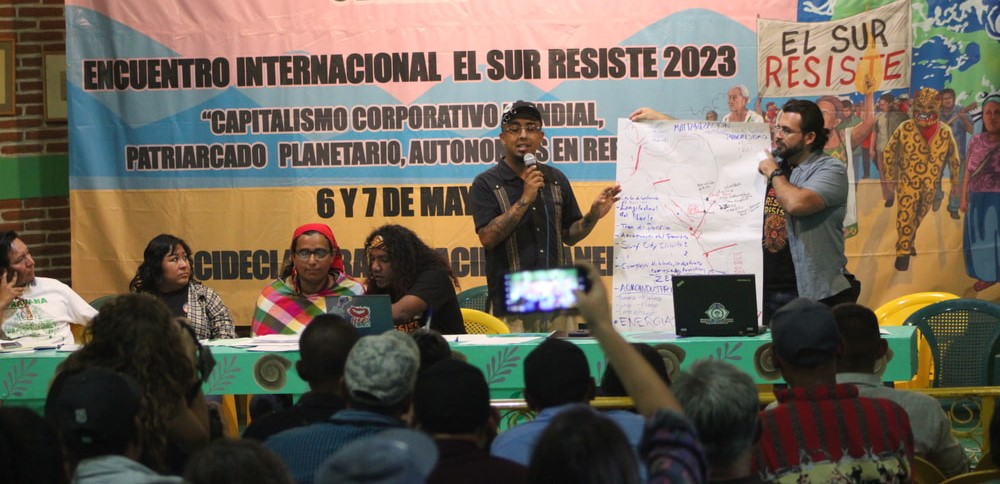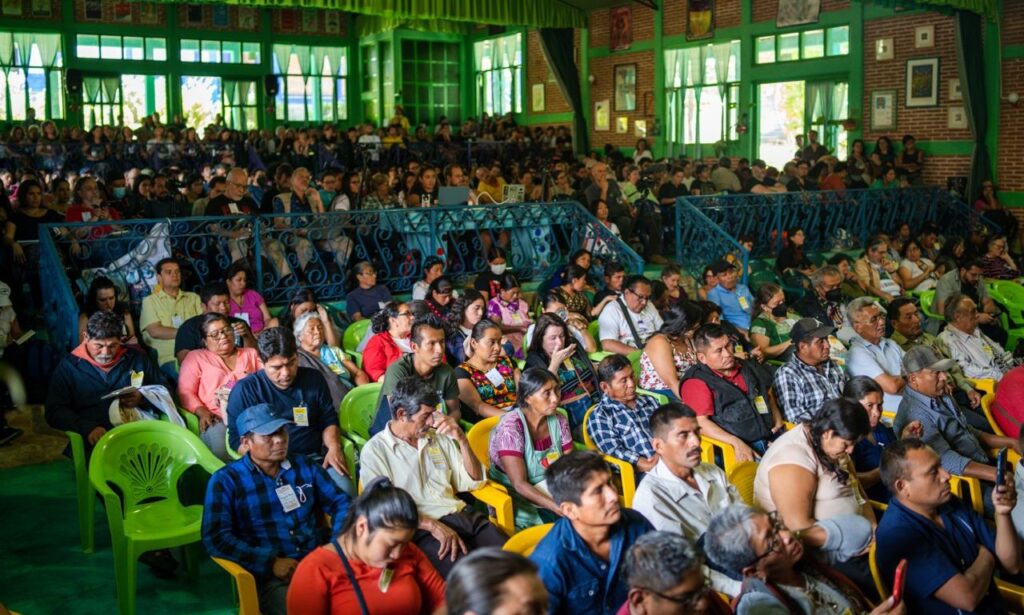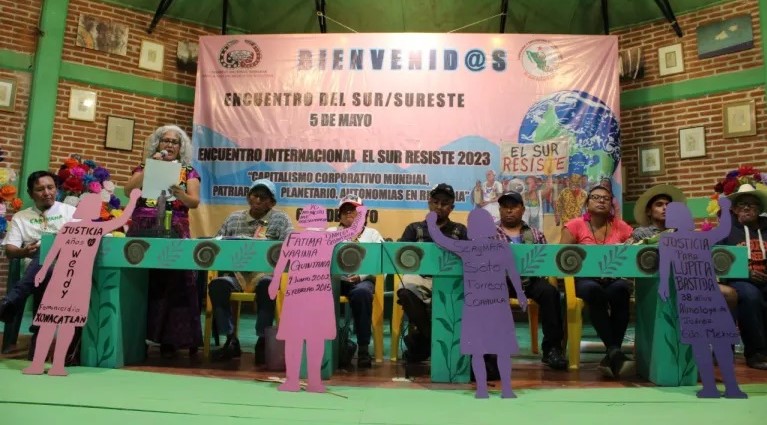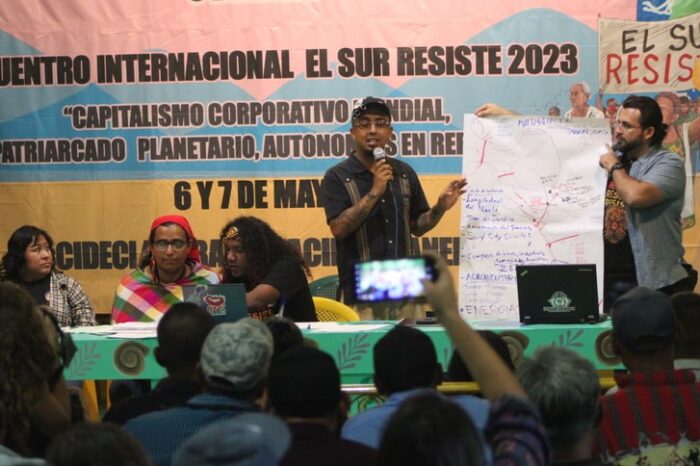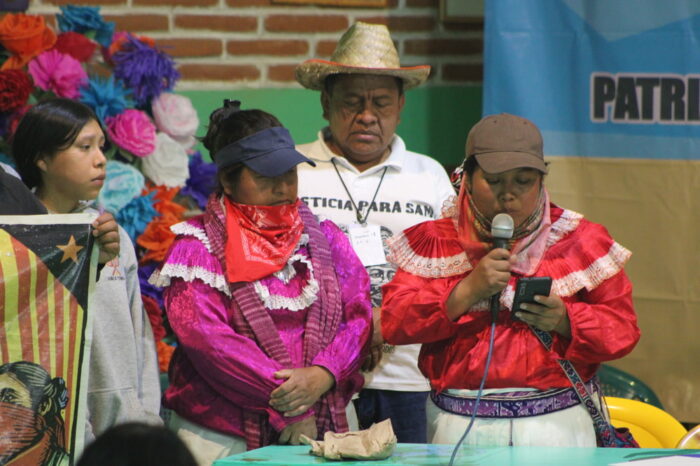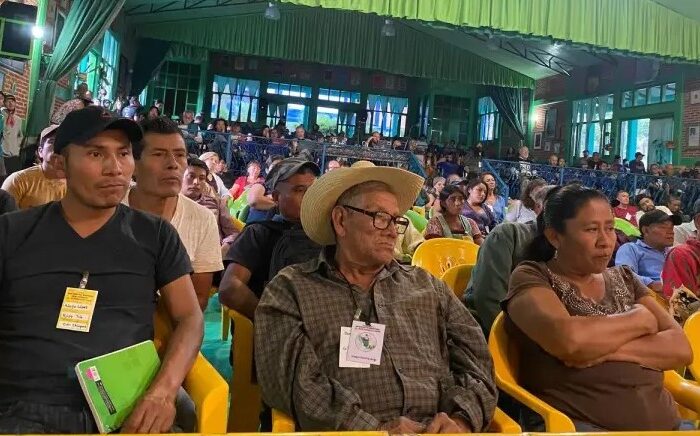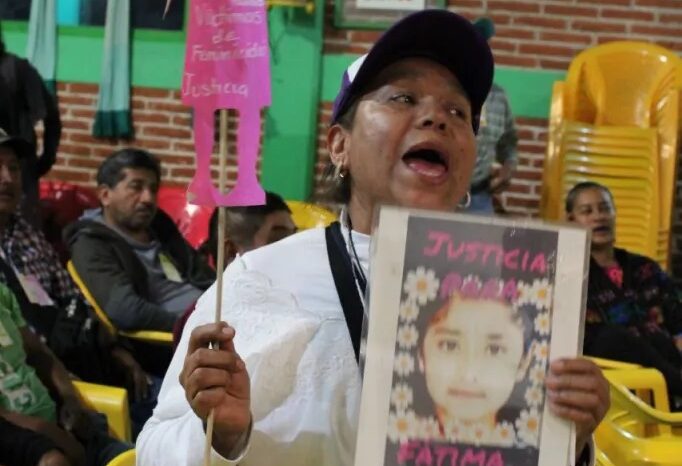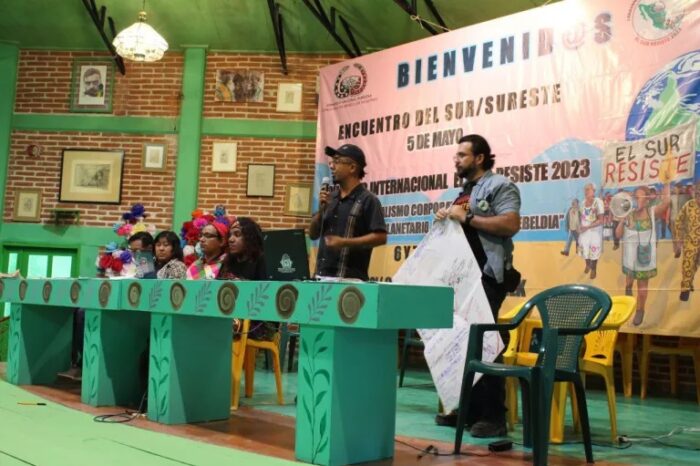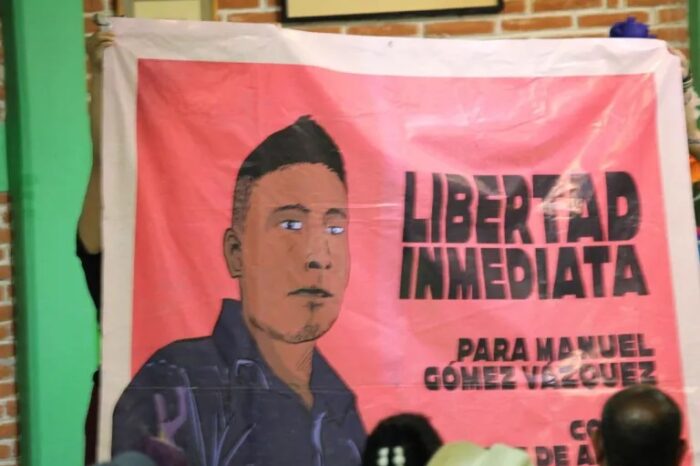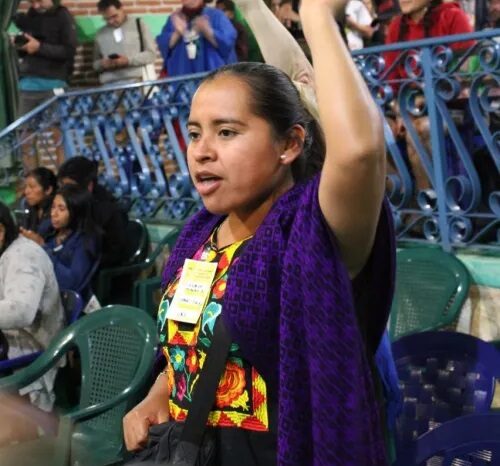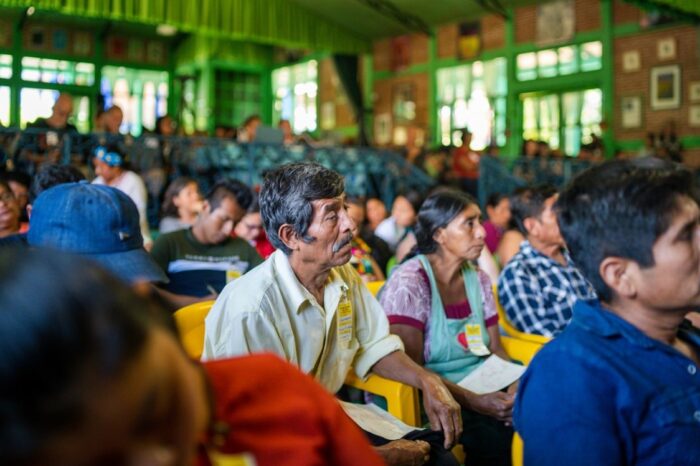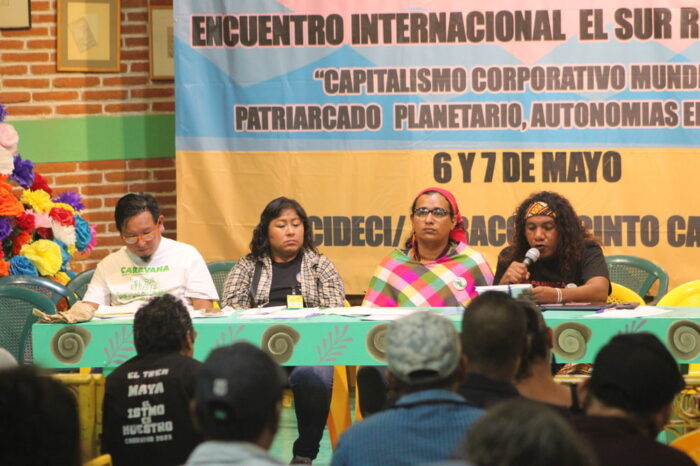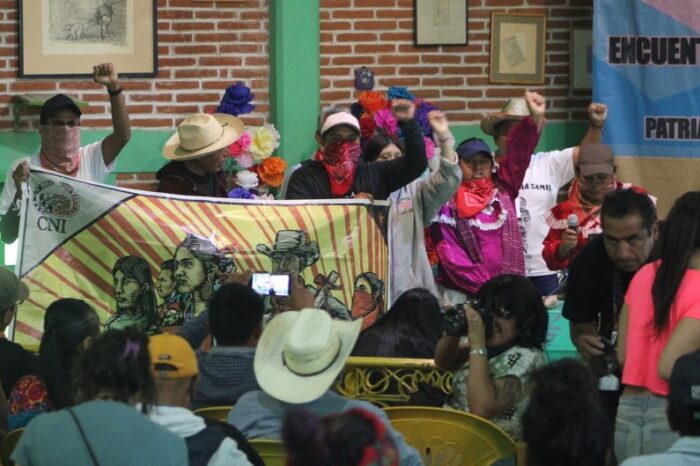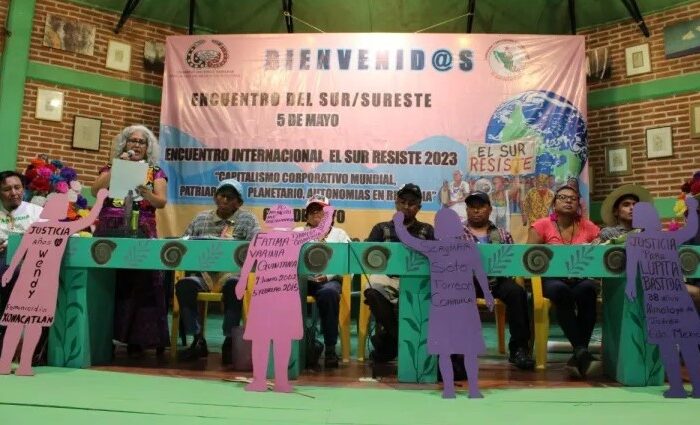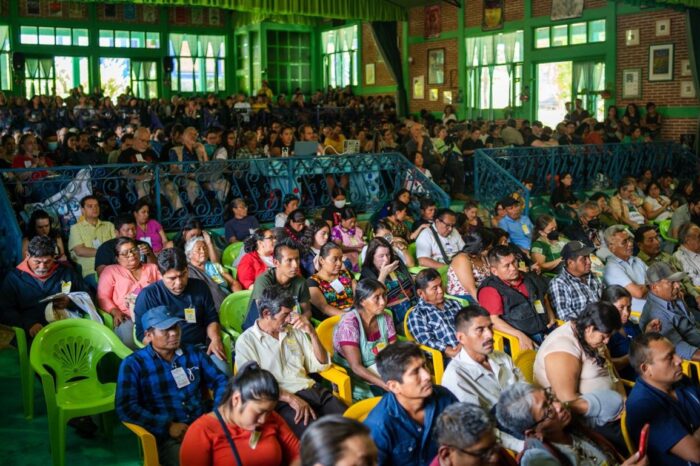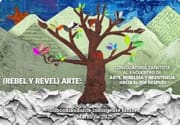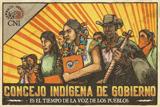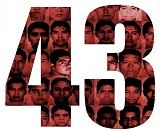CONVOCATORIA.
Octubre del 2024.
Las Asambleas de Colectivos de Gobiernos Autónomos Zapatistas (ACEGAZ), las comunidades zapatistas y el EZLN convocan a todas las personas, grupos, colectivos, organizaciones, movimientos y pueblos originarios que han suscrito la llamada Declaración por la Vida, a los…
Encuentros Internacionales de Rebeldías y Resistencias
2024-2025.
Tema: La Tormenta y el Día Después.
Las sedes para los eventos, así como su realización, están pendientes debido a la evidente situación de inseguridad y violencia que los 3 niveles de gobierno (federal, estatal y municipales emanados de los partidos PRI, PAN, MC, PVEM, PT y MORENA), en Chiapas, han provocado, alimentado y solapado desde hace varios años. Bueno, esa situación existe y persiste en las partes y el todo de esta geografía llamada “México”, pero la intención es que sea en el suroriental estado mexicano de Chiapas.
Las fechas pensadas son:
Primera fecha: Segunda quincena de diciembre del 2024 al 3 de enero del 2025. Sede pendiente. Actividad: pláticas zapatistas sobre su diagnóstico de la tormenta y la genealogía del común para enfrentar el día después. Primera presentación de Arte de jóvenes zapatistas. Sede: pendiente.
Segunda fecha: Febrero-marzo del 2025. Música, Teatro, Pintura, Danza, Escultura y Literatura del día después. Sede: pendiente.
Tercera fecha: Abril 12 al 19. Música, Teatro, Danza, Pintura, Literatura y Escultura del Día Después. Ciencias: Física, Química, Astronomía, Matemáticas, etc. Práctica y enseñanza. Actividades de Artes y Ciencias, sin Electricidad, sólo con instrumentos no eléctricos y con materiales no comerciales, en el terreno, sin internet, sin combustibles fósiles. Sede: pendiente.
Cuarta fecha: Julio del 2025.- Encuentros Semilleros: caminos, ritmo, compañías y destinos para el camino el Día Después. Firmantes de la Declaración por la Vida. Sede: pendiente.
Quinta Fecha: Octubre-Noviembre del 2025.- Caminata-Rodada-Cabalgata-Volada abierta en honor a nuestros anteriores: pie desnudo, chancla, zapato, tacón de aguja, tenis, bota, botín, triciclo, bicis, patines, patineta, patín del diablo, diablito, carretilla, moto, cuatrimoto, caballo, mula (sin agraviar), burro (que no sea funcionario público), lancha, bote, esquí, tabla de surf, trineo, carreta, calandria, auto, camioneta, camión, autobús, tráiler, tractor, trascabo, volteo, silla de ruedas, taxi, reparto por aplicación, dron, avión, avioneta, avioncitos de papel, aeromodelos, rehiletes, etc. Días de muertos: Altares y adornos móviles, portátiles o personales en honor a quienes faltan. Sede: en las partes y el todo del planeta Tierra.
Sexta fecha: Segunda quincena de diciembre del 2025: Semillero sobre la Tormenta y el Día Después, con ponencias invitadas. Sede: por definir.
Más información, en próximos textos que serán publicados en la página electrónica: enlacezapatista.ezln.org.mx
Desde las montañas del Sureste Mexicano.
Subcomandante Insurgente Moisés.
México, octubre del 2024.




